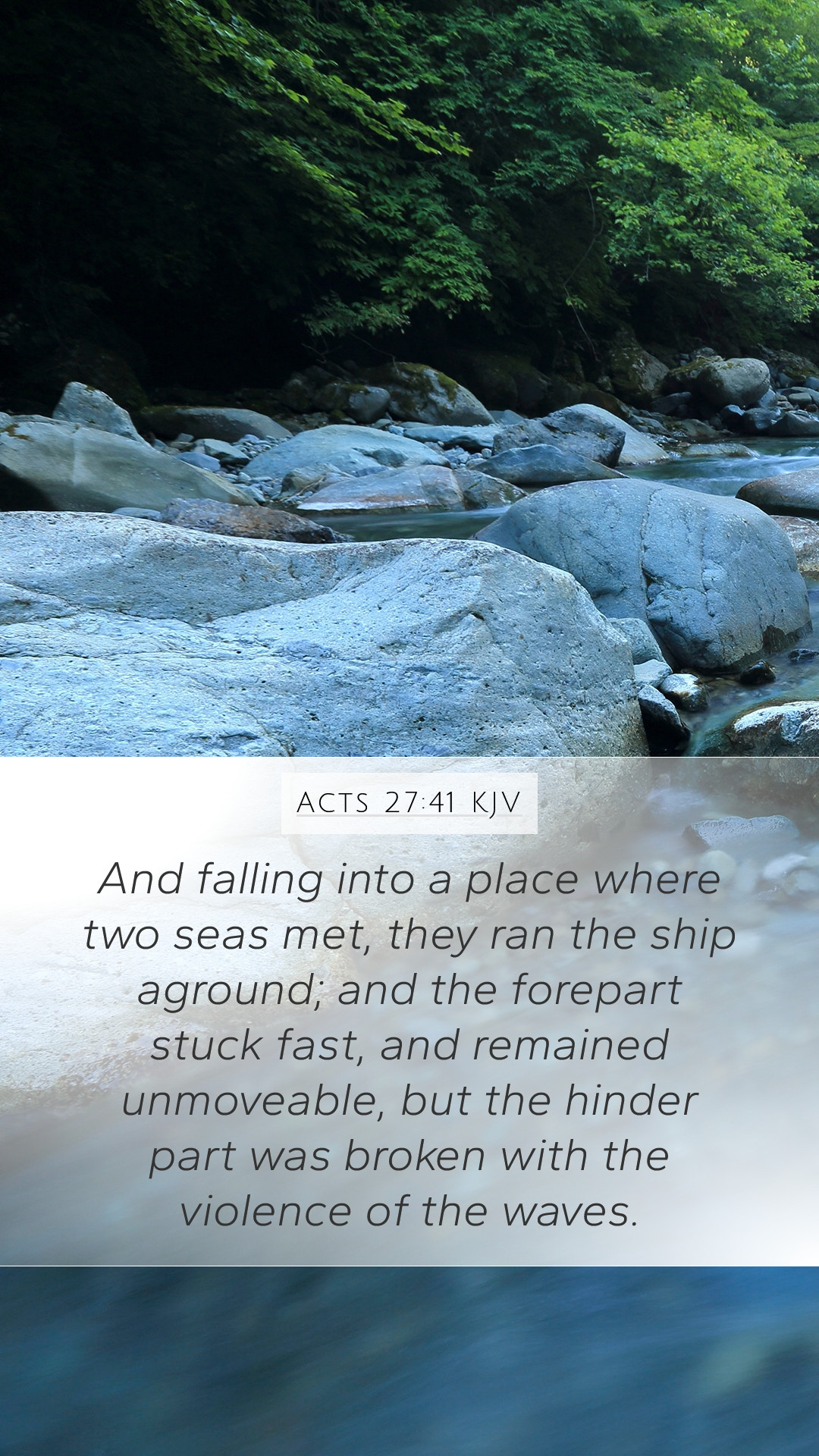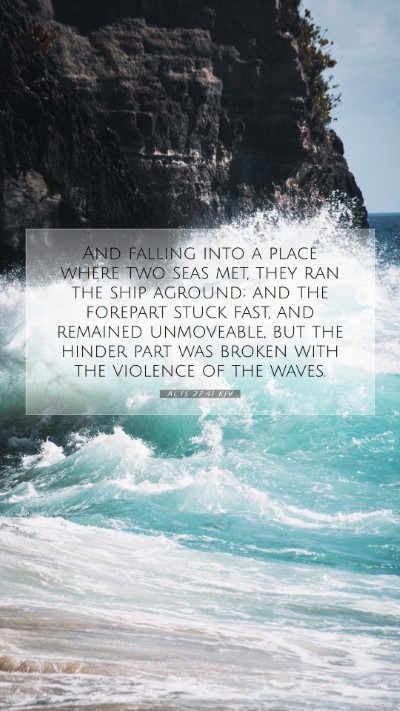Understanding Acts 27:41 - A Comprehensive Bible Verse Commentary
Acts 27:41 states: "And falling into a place where two seas met, they ran the ship aground; and the forepart stuck fast, and remained unmovable, but the hinder part was broken with the violence of the waves."
Context of Acts 27
This scripture is part of the narrative in the Book of Acts where the Apostle Paul is being transported to Rome as a prisoner. The entire chapter describes a perilous sea journey, emphasizing God's providence and Paul's faith amid dire circumstances.
Summary of Commentary Insights
This verse provides a vivid depiction of the shipwreck that Paul and those with him faced. The insights from renowned public domain commentaries offer a rich understanding of its meaning:
- Matthew Henry: He emphasizes God's sovereignty, highlighting that even in shipwreck, God's plans cannot be thwarted. This incident served to reinforce Paul's leadership and faith amid danger.
- Albert Barnes: Barnes notes that the phrase "two seas met" refers to a dangerous crossing where the ship encounters turbulent waters. He discusses the significance of this geographical detail in illustrating the sailors' predicament, pointing towards the human limitations against natural forces.
- Adam Clarke: Clarke elaborates on the practical implications of being shipwrecked, indicating that the ship's stern being broken signifies the disintegration of human efforts when they face divine intervention. He also comments on the metaphorical meaning this event holds for the Christian life and trials.
Key Themes and Biblical Exegesis
Several important themes emerge from Acts 27:41, which can be explored further for deeper Bible verse understanding:
- God's Providence: This event showcases God's unwavering control over creation and His ability to guide through chaos.
- Faith in Adversity: The passage highlights the necessity of maintaining faith during trials. Paul exemplifies steadfastness amidst turmoil.
- Human Fragility: The shipwreck serves as a reminder of human limitations; our plans can be disrupted by circumstances beyond our control.
- Divine Intervention: The breaking of the ship emphasizes that while humans may act, it is ultimately God's will that prevails.
Application of Acts 27:41
In applying the lessons of this verse to daily life, it is crucial to consider how faith can serve as an anchor during difficult times. Below are suggestions for integrating the message of this passage into everyday scenarios:
- Trusting God's plan when facing unexpected life changes or crises.
- Recognizing that setbacks can serve a greater purpose in spiritual growth.
- Encouraging one another in Bible study groups to hold steadfast to faith like Paul did, even when circumstances appear dire.
Related Bible Cross References
To deepen your study, consider these related verses that provide further insight into similar themes:
- Romans 8:28: "And we know that all things work together for good to them that love God, to them who are the called according to his purpose."
- 2 Corinthians 1:10: "Who delivered us from so great a death, and doth deliver: in whom we trust that he will yet deliver us."
- Psalms 107:23-27: Illustrates the experience of sailors in perilous situations and calls upon God for help.
Conclusion
Acts 27:41 serves as a powerful reminder of God's providence and the importance of faith in turbulent times. Through comprehensive scripture analysis and biblical exegesis, believers can derive profound Bible study insights, reinforcing the understanding that even amidst the chaos of life, God's purpose and plan are steadfast.
For those engaged in online Bible study or using bible study tools, this verse becomes a focal point for exploring the significance of faith in trials and the interplay between divine sovereignty and human experience. Keep studying, and remember that every scripture has lessons that resonate through time.


